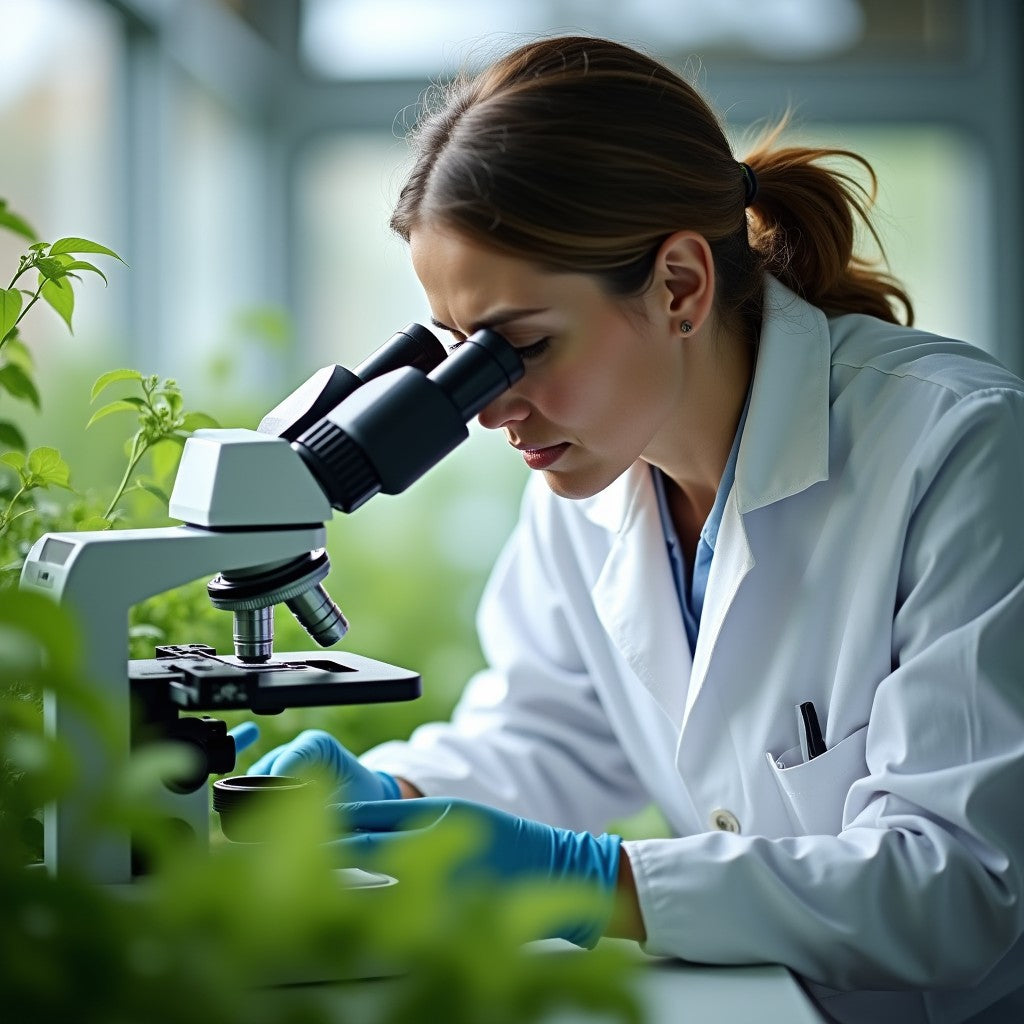
Agricultural Microbiology: The Soil Whisperers
Share
Imagine unlocking the secrets of the soil to boost crop production and plant health. Welcome to the world of agricultural microbiology, where soil whisperers make magic happen.
The Role of Agricultural Microbiologists
Agricultural microbiologists are like detectives of the soil, delving into the intricate world of microorganisms, including bacteria, fungi, actinomycetes, and protozoa. These experts study the symbiotic relationships between plants and microbes, where both benefit from each other. They focus on optimizing the conditions for plant growth by developing biofertilizers, which enhance soil fertility, and biopesticides, which protect plants from harmful pests. By understanding the specific requirements of plants, such as soil texture, nutrients, and water content, agricultural microbiologists help minimize agricultural loss and boost crop yield. Their work also involves diagnosing and preventing plant diseases caused by pathogens. Through their extensive research and development, agricultural microbiologists revolutionize farming practices, making them safer, more reliable, and sustainable, which ultimately contributes to global food security.
What’s the Pay Like?
You might be wondering, "Can I make a good living doing this?" Absolutely! Agricultural microbiologists can earn between $50,000 and $90,000 a year. The exact amount you can earn depends on your level of experience and the specific job role you take on. For example, entry-level positions typically start at the lower end of the salary range, while more experienced professionals, or those in specialized roles, can earn a salary toward the higher end. The financial benefits make this a rewarding career path, especially when combined with the satisfaction of contributing to sustainable agriculture and food security.
How Do You Become a Soil Whisperer?
Becoming an agricultural microbiologist starts with a strong foundation in high school science courses like biology, chemistry, and physics. After high school, aspiring agricultural microbiologists typically pursue a bachelor’s degree in microbiology, agriculture, or a related field, which takes about four years. During undergraduate studies, gaining practical experience through internships and research projects is essential. After earning a bachelor’s degree, achieving further specialization takes an additional two to six years through graduate studies. This could involve a master’s degree or a Ph.D. in microbiology. Throughout this period, hands-on training and networking through internships, research positions, and conferences are crucial for building expertise and professional connections.
Career advancement in agricultural microbiology often requires continuous learning and may involve obtaining certain certifications. Entry-level positions might include roles such as a research assistant or laboratory technician, while advanced roles can include becoming a research scientist or agricultural consultant. Key skills and qualities for success in this field include strong analytical skills to interpret data and conduct experiments; effective communication skills for both written and oral scientific communication; and excellent problem-solving abilities to develop innovative solutions. Agricultural microbiologists must also work well as part of a team and demonstrate strong project management skills as they advance in their careers.
Why Choose Agricultural Microbiology?
If you’re passionate about science and have a desire to make a tangible impact on the world, agricultural microbiology could be the perfect fit for you. The work of agricultural microbiologists is critical in addressing global food security. With the world's population continuing to grow, the demand for food is ever-increasing. By improving the efficiency and sustainability of agricultural practices, you could help to ensure that we can feed everyone on the planet. It’s a career where you can make a real difference, contributing to the well-being of communities and the health of our planet.
Beyond the science, this field offers a dynamic and exciting career path. You could find yourself working in diverse environments, from laboratories and greenhouses to farms and research institutions. The challenges you’ll face are varied and complex, requiring a blend of curiosity, creativity, and critical thinking. The satisfaction of seeing your research translate into real-world solutions that help farmers and protect the environment is immensely rewarding.
Choosing a career in agricultural microbiology means you’re stepping into a role that combines science, innovation, and environmental stewardship. It’s a chance to be part of something bigger, working towards a future where agriculture is sustainable, efficient, and capable of meeting the food needs of generations to come.
Additional Information:
ASM.org. “A Career in Microbiology and Precision Agriculture,” 2021. https://asm.org/Articles/2021/January/A-Career-in-Microbiology-and-Precision-Agriculture. Accessed 11 Nov. 2024.
Unsustainable Magazine. “Microbiology and the Agriculture Industry: A Brief Overview,” 2023. https://www.unsustainablemagazine.com/microbiology-agriculture-industry/. Accessed 11 Nov. 2024.
Gadwal, Shilpa., ASM.org. “Getting into Agricultural Biotechnology (AgBiotech) | ASM.org,” 2021. https://asm.org/Articles/2021/June/Getting-Into-Agricultural-Biotechnology-AgBiotech. Accessed 11 Nov. 2024.
